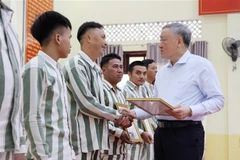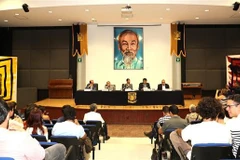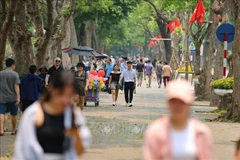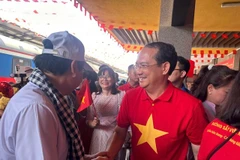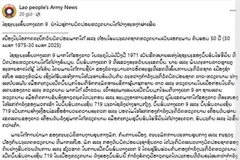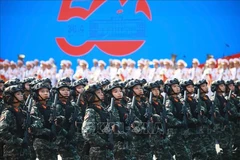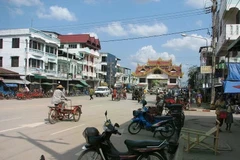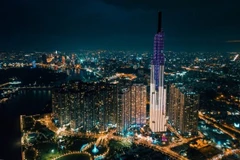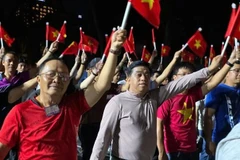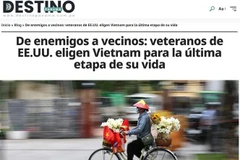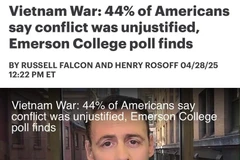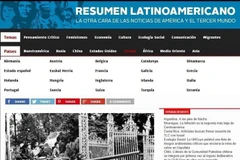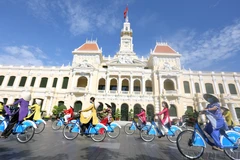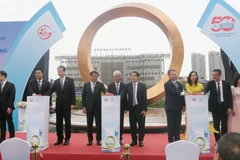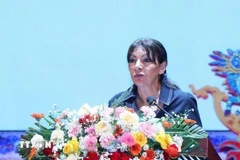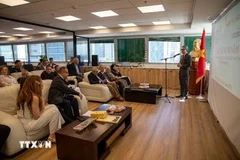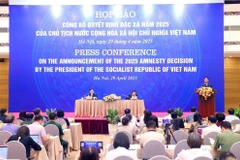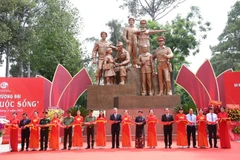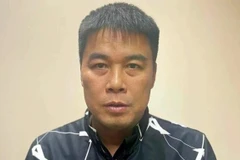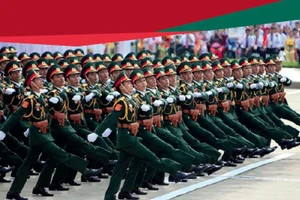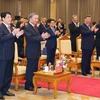Addressing the firstplenary session entitled “South China Sea State of Affairs: Threats, Risks andOpportunities”, Greg Poling, Director of the Asia Maritime Transparency Initiative at the US-basedCenter for Strategic & International Studies, said themost important development in the South China Sea over the last year has beenthe growth in the number of China Coast Guard and maritime militia vesselsChina has deployed to the Spratly archipelago.
These ships are now patrolling every part of the ninedash line continuously and are becoming more aggressive in harassing SoutheastAsian states' normal activities including oil and gas work, fishing, andresupply of their outposts, he said.
“If the situation continues, it will soon be too riskyfor regional actors to engage in any normal activity without Chineseparticipation,” he stressed.
During thesession, delegates identified threats, risks and opportunities in the SouthChina Sea in relation to regional peace and stability. Particularly, they also assessedthe past year’s behavior and activities of all parties concerned and how they wouldaffect inter-state relations and strategic seascape in the waterway ofstrategic importance.
Meanwhile, Dr. Nicola Casarini from the Istituto AffariInternazionali of Italy said at the second plenary session on “The South China Sea in CompetingVisions” that Beijing continues to challenge therules-based order in the area by building artificial islands with militaryfacilities and weapons systems, drilling for oil and gas, and chasing off itsSoutheast Asian neighbours’ fishing vessels from waters where they have therights to fish in accordance with the United Nations Convention on the Law ofthe Sea (UNCLOS).
The EU is scaling up itssecurity engagement in and with Asia, in line with EU global strategy’sobjective to support a rules-based international order, Casarini told the participants.
In the secondplenary session, participants examined the importance of the South China Sea inmajor players’ grand strategies or regional visions in a way to mapping out howthe South China Sea is connected with their security and economic prosperity.Also, they mapped out the differences and similarities in the major players’interests in and approaches to the South China Sea to better understand thenature of their cooperation and competition over the relevant issues at thismoment and time to come.
The panelistswere requested to examine the South China Sea from the perspectives of theircountries’ policies and strategies, either Belt and Road Initiative or Free andOpen Indo-Pacific, or their respective regional policies.
Dr. EkaterinaKoldunova, Deputy Dean at the School of Political Affairs and AssociateProfessor at the Department of Asian and African Studies under theMGIMO-University of Russia, said the region haswitnessed not only the reminiscence of the great power rivalry but also acontestation of regional and trans-regional visions and competition of projectsat the nexus of economy, politics, security and infrastructural development. China’sBelt and Road Initiative (BRI) had multiple unintended results as long as moreand more countries started to speculate what it really means to be included ornot included in the BRI, she said.
The 11th South China Sea International Conference is being jointly organised on November6 and 7 by the DiplomaticAcademy of Vietnam (DAV), the Foundation for East Sea Studies (FESS) and the VietnamLawyers Association (VLA), drawing the participation of more than 50 speakersand around 250 officials, scholars and diplomats of Vietnam and foreigncountries.
For the past decade, since its first editionin 2009, the conference has become one of the most prominent forums which havegathered leading experts to brainstorm a wide range of issues from maritimesecurity, international law, marine-based economic development, and marineecology, which are deemed important to regional peace, development andenvironmental sustainability. Ongoing developments have shown the South ChinaSea issue to be intractable. There have been more military exercises andencounters over the last year than ever before. The standoff over hydrocarbonresources escalated in various areas. Competition for fishing grounds has beenintense throughout the year.
Without signs of fatigue, the 11th conferencebuilds up the tradition of candid and open exchange established over the last10 years and will be upgraded with a number of new features. First andforemost, the format of the discussion has been adapted to reflect greaterinterests in the South China Sea issue from a wider audience, particularly theneed to engage more extensively with policy practitioners and makedeliberations more policy relevant. In other words, the conference is aimed atestablishing a comfortable zone for bridging Track I and Track II to work outcreative measures of practical nature to improve the situation at sea.
Second, it also looks at the South China Seain broader geographical and political spaces, in which the maritime commons, asa continuum and an extension to the continental sphere, are interlinked andinseparable. As a result, this year’s conference includes three concurrentroundtables on the East China Sea, Indian Ocean, the Pacific and polar regionsto map out connectivity, similarities, and differences among them./.








